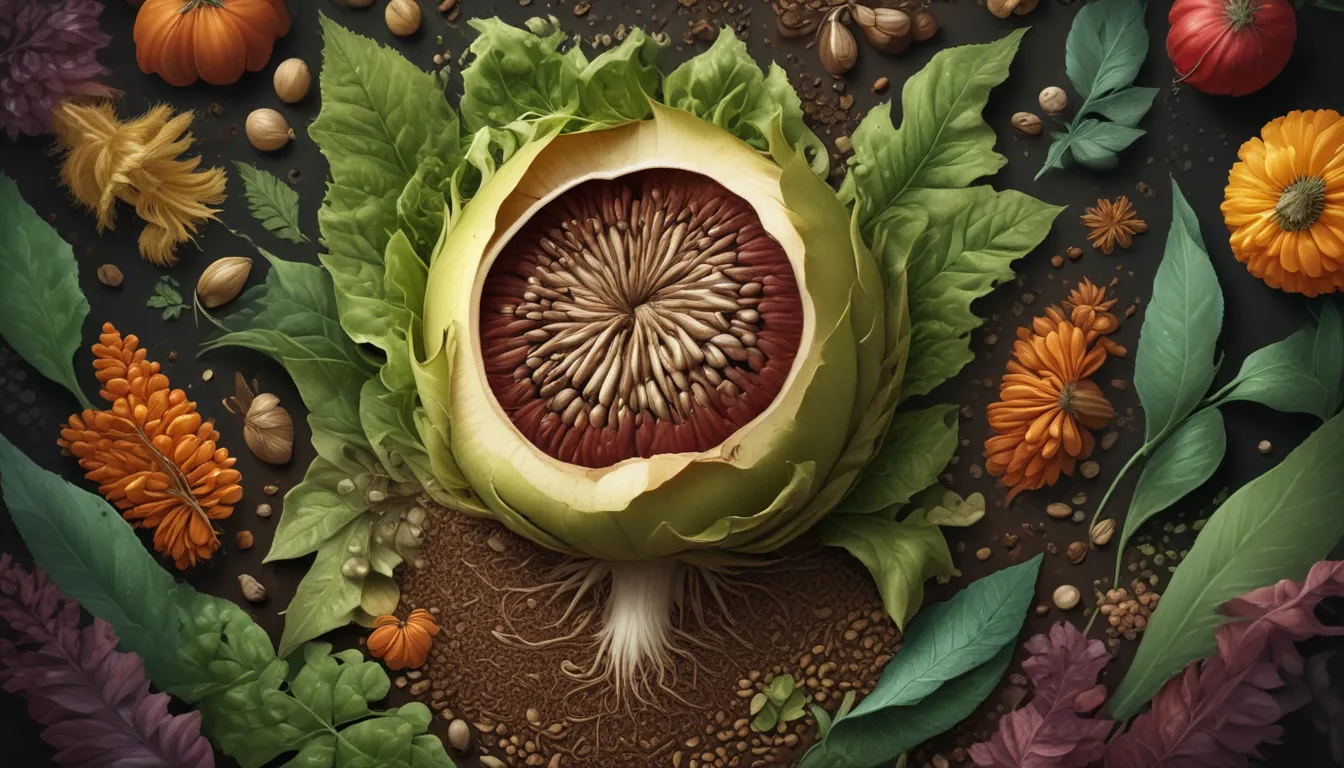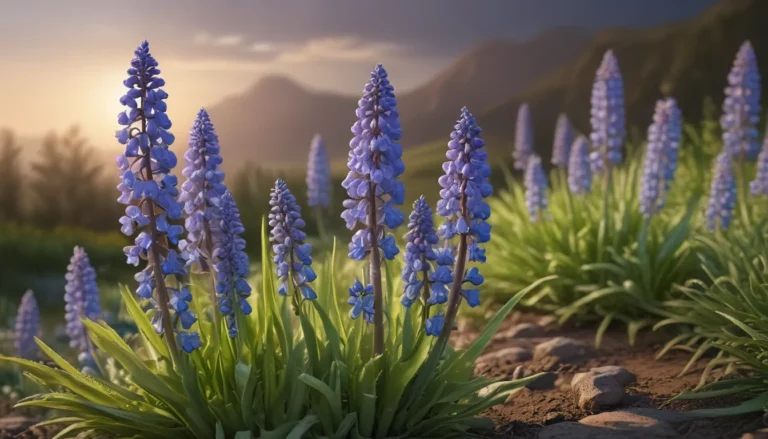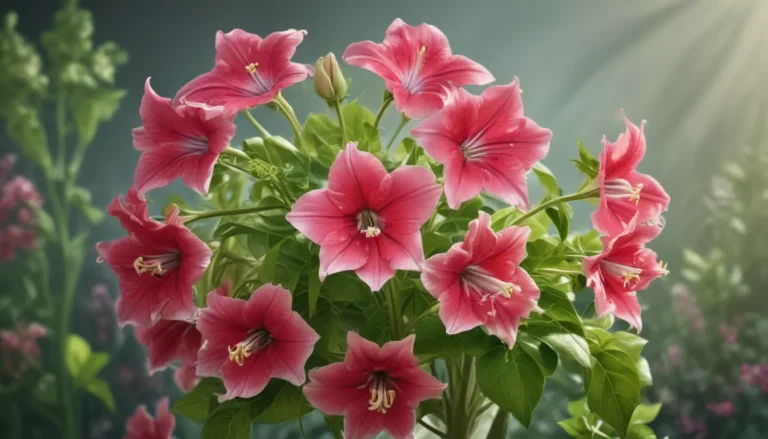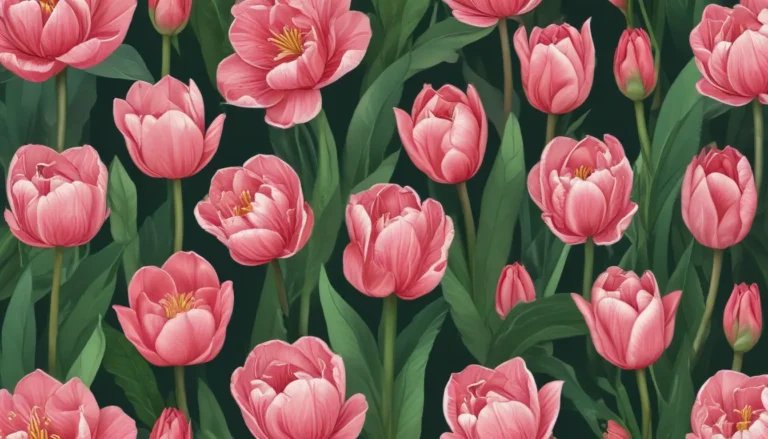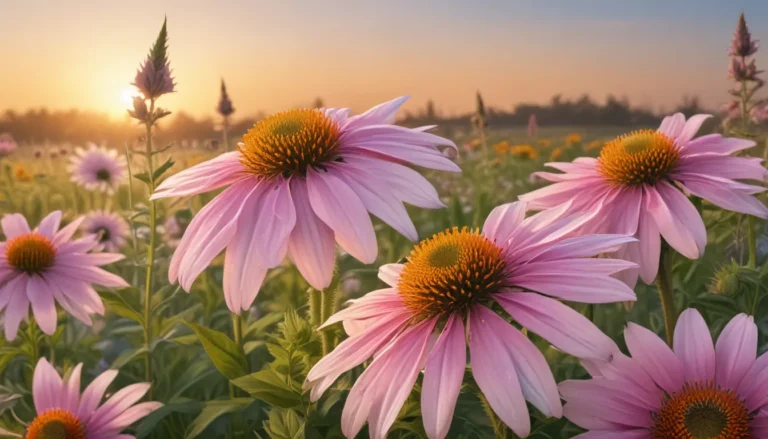The pictures we use in our articles might not show exactly what the words say. We choose these pictures to make you interested in reading more. The pictures work together with the words but don’t take their place. The words still tell you the important facts.
Seeds, those tiny powerhouses of life, hold within them the potential to grow into majestic trees, vibrant flowers, and nutritious crops. They are nature's precious treasures, embodying the promise of new beginnings and abundant growth. In this enlightening journey, we will delve into the captivating world of seeds, uncovering 19 fascinating facts that showcase their remarkable diversity, resilience, and significance in the natural world.
Seeds: Nature’s Tiny Miracles
Seeds are not merely small specks in the palm of our hands; they are the very essence of life, the seeds of growth, and the epitome of nature's resilience. Let's embark on a journey of discovery as we unravel the remarkable attributes of seeds that make them such extraordinary entities in the grand tapestry of nature.
The Marvel of Seed Preservation
Imagine seeds frozen in the permafrost for over 30,000 years, only to be successfully germinated by a team of Russian scientists. This awe-inspiring discovery of Silene stenophylla seeds showcases the incredible longevity and resilience of seeds, making them the oldest viable seeds ever to be grown.
Orchids: Masters of Tiny Seeds
The seeds of orchid species are so minuscule that a single seed capsule can contain up to 4 million seeds. This abundance of seeds not only fascinates but also highlights the survival strategies these delicate plants have evolved in their natural habitats.
The Extraordinary Travelers: Seeds on the Move
Some seeds have developed extraordinary ways to disperse and colonize new territories. Take, for example, the coconut seed, which can float in seawater for long distances, allowing it to establish itself on distant shores and continue its journey of growth and survival.
The Diverse World of Seeds
From the colossal seeds of the coco de mer palm, weighing up to 30 kilograms, to the microscopic seeds of certain orchids, seeds come in an astonishing array of shapes and sizes. This diversity in the seed kingdom is a testament to the wonders of nature's creativity.
Seeds: Sustaining Agriculture and Civilization
The domestication and cultivation of seeds have played a pivotal role in the development of human civilization. The transition from foraging to farming marked a significant moment in history, laying the groundwork for settled societies and the advancement of agricultural practices.
Nutritional Powerhouses: Seeds as Health Boosters
Many seeds, such as chia seeds, flaxseeds, and sunflower seeds, are packed with essential nutrients like omega-3 fatty acids, protein, and fiber. Incorporating these nutritional powerhouses into a balanced diet can offer a plethora of health benefits, making seeds a valuable addition to our meals.
Seeds with Unique Germination Requirements
Some seeds, like those of the fire-dependent lodgepole pine, rely on the intense heat of forest fires to trigger their germination. This remarkable adaptation ensures the regeneration of the species in fire-prone ecosystems, highlighting nature's ingenious ways of survival.
Seeds: Sparks of Human Ingenuity
The design of Velcro was inspired by the tiny hooks found on burdock seeds. This natural mechanism captivated Swiss engineer George de Mestral, leading to the development of the innovative fastening system that revolutionized industries beyond textiles.
Culinary Delights: Seeds in Global Cuisine
From the aromatic spices of coriander and cumin to the rich flavors of sesame and poppy seeds, a plethora of seeds enrich global cuisine, adding depth and complexity to dishes across diverse culinary traditions. Seeds not only enhance flavors but also offer culinary creativity in abundance.
Biodiversity Builders: Seeds as Genetic Blueprints
Seeds embody the incredible diversity of plant life on Earth, each one representing a unique genetic blueprint that contributes to the tapestry of biodiversity. This rich diversity sustains ecosystems and supports life on our planet, emphasizing the vital role seeds play in the natural world.
Dormant Guardians: Seeds Waiting for Their Time
Some seeds possess the remarkable ability to remain dormant for years, or even decades, until conditions become favorable for germination. This remarkable trait allows plants to persist through harsh environmental conditions, showcasing the resilience and adaptability of seeds.
Seeds as Symbols of Hope and Renewal
Throughout history and across cultures, seeds have symbolized renewal, growth, and the eternal cycle of life. They hold the promise of new beginnings and the resilience of nature, inspiring hope and fostering a deep connection to the natural world.
Seeds Beyond Earth: Moon Travels
In 1982, tree seeds, including those of loblolly pine, sycamore, sweetgum, redwood, and Douglas fir, were carried to the moon as part of the Apollo 14 mission. These "Moon Trees" returned to Earth and were distributed to various locations, symbolizing the universal journey and resilience encapsulated in seeds.
Extreme Survivors: Seeds in Harsh Environments
In the unforgiving conditions of the Atacama Desert in Chile, certain seeds have developed specialized adaptations to survive extreme drought and temperatures. This resilience in challenging habitats underscores the remarkable survival strategies of seeds in the face of adversity.
Ecosystem Restorers: Seeds in Ecological Recovery
The propagation and planting of native seeds play a vital role in restoring degraded ecosystems and supporting biodiversity recovery. Seed banks and conservation efforts are indispensable in preserving the genetic diversity of plant species, ensuring the health and sustainability of ecosystems.
Agricultural Pillars: Seeds as Foundations of Farming
The agricultural revolution, driven by the cultivation of seeds, ushered in a new era of human societies and the development of complex civilizations. Today, the preservation and sustainable use of seeds are essential for ensuring food security and safeguarding agricultural heritage for future generations.
Sustainable Seeds: Creating Eco-friendly Materials
Seeds contribute to the production of sustainable materials, from cotton fibers to oils used in biofuels and industrial applications. These eco-friendly materials reduce our reliance on non-renewable resources, highlighting the potential of seeds in fostering a more sustainable future.
Seeds: Promises for Tomorrow
As we marvel at the diversity, resilience, and significance of seeds, we recognize their enduring importance in shaping our past, present, and future. The "19 Fun Facts About Seeds" offer a glimpse into the captivating world of seeds and their profound impact on the natural world and human civilization.
Conclusion: Embracing the Seeds of Wonder
Seeds are not just small entities; they are the bearers of life, growth, and sustenance. By understanding and appreciating the significance of seeds, we can cultivate a deeper connection to the natural world and acknowledge the profound impact they have on our lives. Let us continue to explore, learn, and marvel at the wonders of seeds, those tiny yet extraordinary gems of nature.
FAQs: Answering Your Seed-related Queries
Q: What are some unusual ways seeds can be dispersed?
Seeds have evolved creative dispersal methods, from hitching rides on animal fur to floating on water and being explosively launched from pods.
Q: How can I start my own seed collection?
To begin your collection, save seeds from your favorite fruits and vegetables, ensure they are fully dry, and store them in a cool, dark place for viability.
Let the magic of seeds inspire you as you explore the hidden marvels of nature's tiny powerhouses.
